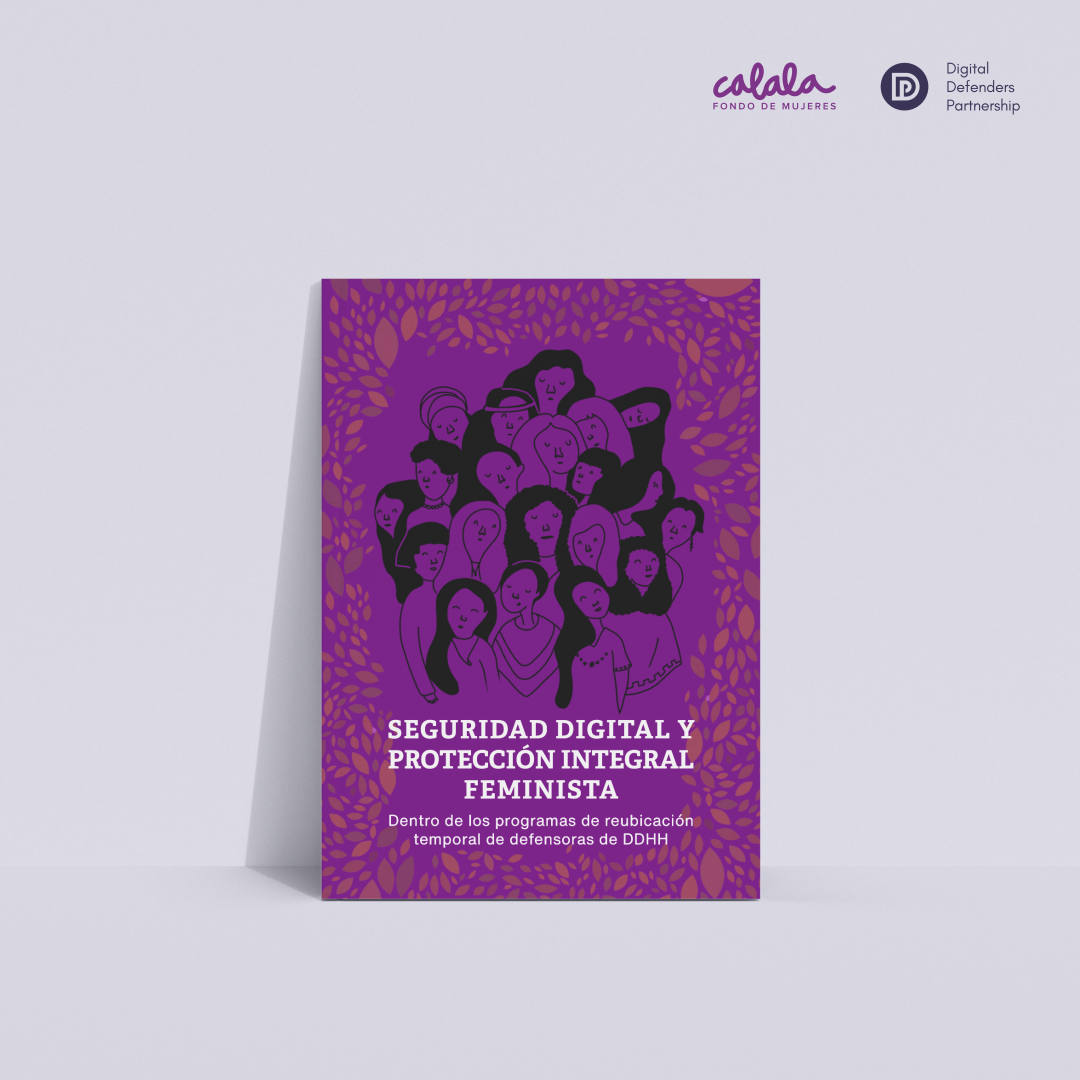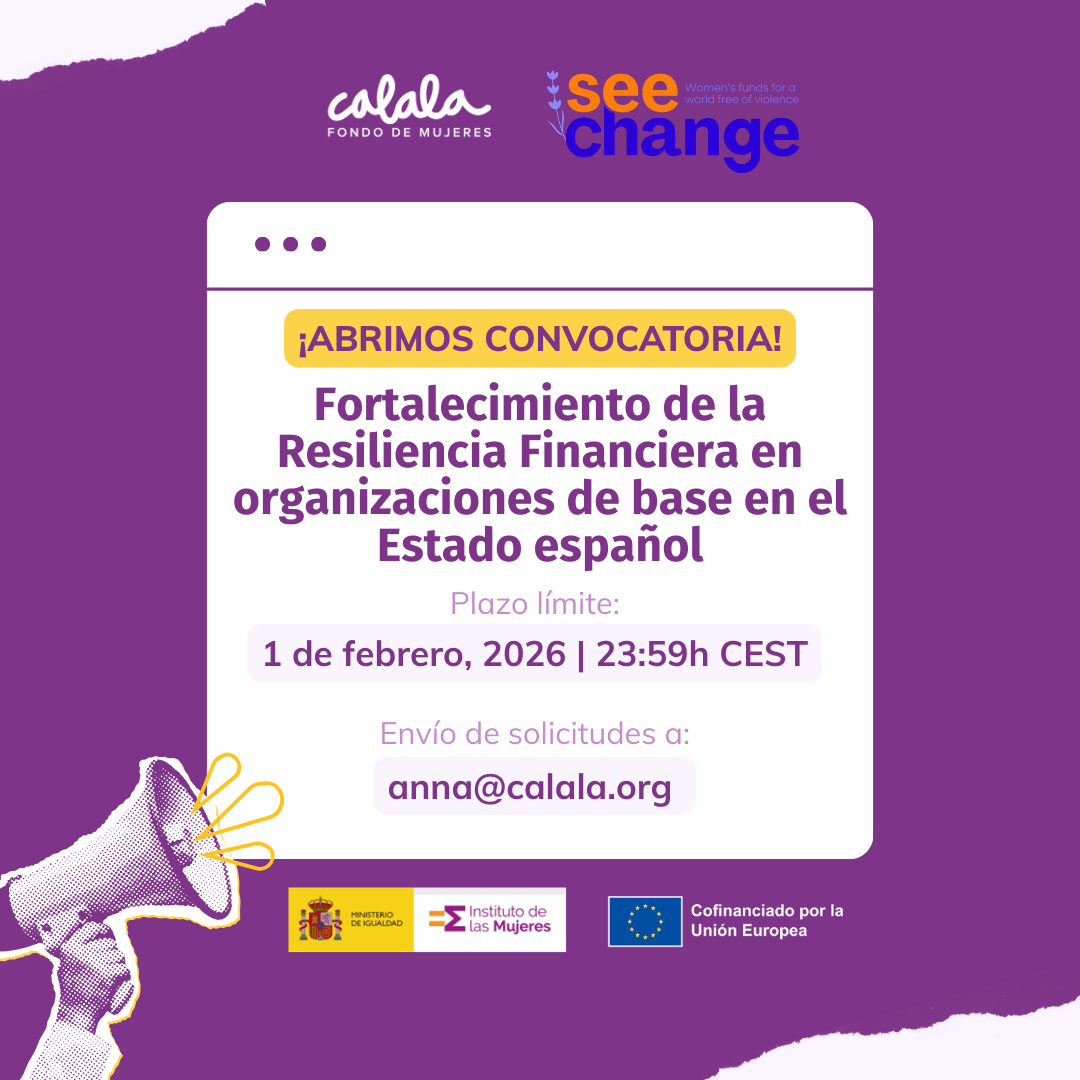Digital security and comprehensive feminist protection within the temporary relocation programmes for WHRDs
The document recovers the experience of temporary relocation programmes for women human rights defenders, which are presented as an option to improve the security and welfare conditions for women human rights defenders when other forms of protection at the community or national level have been exhausted. Above all, the challenges that exist within of the programmes with the intersection that exists between the relationship, information and communication technologies (TRIC), comprehensive feminist protection and digital security.
This research is based on Feminist Integrated Protection (FIP) as a theoretical-practical framework that highlights the interconnection between psycho-emotional security, physical security and digital security, as well as individual and collective healing and restoration, as fundamental to the sustainability of the defence of human rights. Feminist Integral Protection is a contribution of Mesoamerican women human rights defenders, particularly from the Mesoamerican Initiative of Women Human Rights Defenders (Iniciativa Mesoamericana de Mujeres Defensoras de Derechos Humanos).
This diagnosis, as well as the identification of risks and the proposed recommendations, are based on the analysis of 13 interviews carried out between April and June 2021 with people who coordinate temporary relocation initiatives in Spain and the European Union, partner associations, public institutions that finance these programmes, and defenders who have been temporarily relocated or who help others to leave their territories. A review of the existing literature on good practices in temporary relocation programmes has also been carried out.

The diagnosis
The paper is divided into three parts. The first part presents a diagnosis of the perspective and practices of temporary placement programmes in terms of how they include comprehensive feminist protection, digital security, and (digital) gender-based violence in their programmes.
The second part delves into the possible risks during the different steps of the temporary relocation process that have been detected in the interviews and the literature review. The third part presents possible recommendations to mitigate risks during the process of temporary relocation from a feminist integral protection perspective with a focus on digital security.
Further recommendations
Based on the diagnosis and risk analysis, three main recommendations are presented:
Decolonising programmes
Specific recommendations include recognising that structural racism exists; fostering conversations about power with communities, and where there is space for listening and critique; creating spaces for change with more marginalised identities; being careful about the language used, much of which is rooted in our colonial history; foster a culture of openness to critique; fund boldly and with accessible, flexible, secure and inclusive funding; invest in indigenous knowledge; and re-evaluate alliances with local organisations to establish long-term strategic partnerships that are not determined by the short-termism of project circles.
2. Promoting a broad perspective on digital security
“The colonial condition in technologies is the continuity of skills and practices that relate to racism, discrimination, and the rejection of sexual and gender diversity. It is under these preconceptions that preconceptions arise about who makes technology and who can handle it. Technology is not neutral and it is no coincidence that we believe that only experts (programmers or computer scientists) can implement digital security in everyday life”.”
The recommendations therefore propose demystifying and politicising the TRICs as the political space that they are. Stop treating them as unattainable spaces. Recognise the capacities, knowledge and strategies of women defenders, and take responsibility for our uses of and relationships with ICTs. Standardise the basics of digital security within programmes and ensure secure and confidential internal and external communication channels.
On the other hand, it is recommended to broaden the focus of digital security from a holistic feminist self-defence perspective, and to develop adapted curriculum materials on TRICs. Finally, make visible global and local networks for holistic digital security accompaniment and maintain shared technical and resource infrastructure between relocation programmes.
3. Addressing digital male violence
“Because attacks against WHRDs are normalised both in public space, offline and online, little attention is given to the effects they have on our bodies, psyches and emotions. Florencia Goldsman reminds us that “All of these attacks have a real impact on women's lives because they generate reputational damage, isolation, alienation, limited mobility, depression, fear, anxiety and sleep disorders, among others” (2020)”.”
Although the diagnosis recognises that progress has been made in addressing gender-based violence from a holistic approach, there is still a long way to go. It is recommended to develop protocols to address violence, to include training to address it from a feminist self-defence approach, to include male violence within the healing or psychosocial processes, to train the people who coordinate the programmes, etc.







